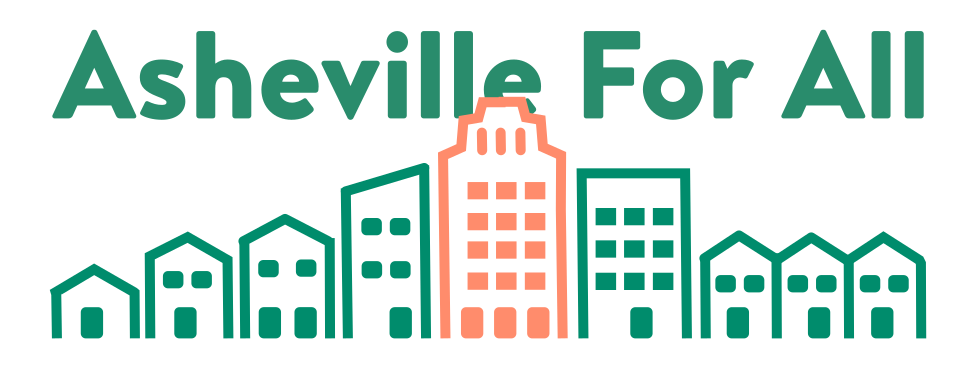Complete Streets Are About Affordability
This member commentary post does not necessarily reflect the views of Asheville For All or its members.
On October 10th, the City Council is again taking up the matter of “complete streets” downtown. (In short, complete streets are those that accommodate bicyclists and pedestrians as well as cars.) I think it’s important to talk about this issue from an affordability perspective.
I came to Asheville nearly ten years ago, having been hired for a job in an office downtown. I was used to living in a Minneapolis neighborhood with density, transit, and bicycling infrastructure. When I came here, I couldn’t afford a car. But I could afford an apartment just a mile north of downtown, and I could afford a bike.
To make a long story short, the city’s infrastructure failed me. I quickly gave up biking after experiencing this city’s intolerant drivers and inhospitable streets. I found it easier just to walk to work, though there were hills, rather than wait for buses or attempt to bike. I did this for a year, after which time I finally purchased a small car.
Today, it’s much harder to find an affordable apartment in North Asheville or other core neighborhoods closest to where jobs are. Car prices and costs related to driving and maintenance have inflated quite a bit (though not as much as housing). And biking and transit infrastructure still need improvement.
But there’s hope on the horizon. The city’s missing middle initiative, if it leads successfully to substantive policy change, will promote more homes in our walkable residential neighborhoods near downtown. E-bikes—and cargo e-bikes!—are transforming the potential for biking, even for families, and even in Asheville. And more biking infrastructure, along with improvements for pedestrians and transit riders, can only make things easier for working people that can’t afford a new car.
(The average car price right now is just below fifty grand. The average e-bike cost is surely less than one-tenth of that, with lower maintenance costs too.)
This means hope for not drowning in housing costs or car payments. But that hope will be dashed if the City Council can’t see the potential for bucking our auto-dependent, sprawled out, housing scarce, greenhouse-gas-emitting, and enormously costly status quo.
Last year I sold that small car. I work remotely now, and we needed the money. My family still has one car, which is to say we are “car-lite.” Transportation use exists on a spectrum, and any reduction in car ownership and vehicle-miles-traveled can help not just the environment but also our wallets.
Furthermore, housing affordability is directly dependent on our ability to scale our alternative mobility capacities. The need for more housing density in and near downtown is inextricable from the need to more efficiently and sustainably move people in, out, and around those places. If we can’t add people to our core, high-value, high-opportunity neighborhoods; and if we can’t turn parking spaces and parking lots into homes; we’ll never solve our city’s housing shortage.
Just as welcoming ALL kinds of people into our city means having homes of all types, sizes, and configurations for them to live in; so does welcoming all kinds of people to our streets mean that we need space for alternative mobility too. And just as those housing types that are missing in this city are those that are more space-efficient, more green, and inherently more affordable; so too are those alternative mobility options more space-efficient, more green, and inherently more affordable.
* * *
Please sign on to Asheville For All’s statement in support of “complete streets” by Thursday night (October 5th). We will be sending the statement along with your signatures to City Council on Friday morning.
This member commentary post does not necessarily reflect the views of Asheville For All or its members.
